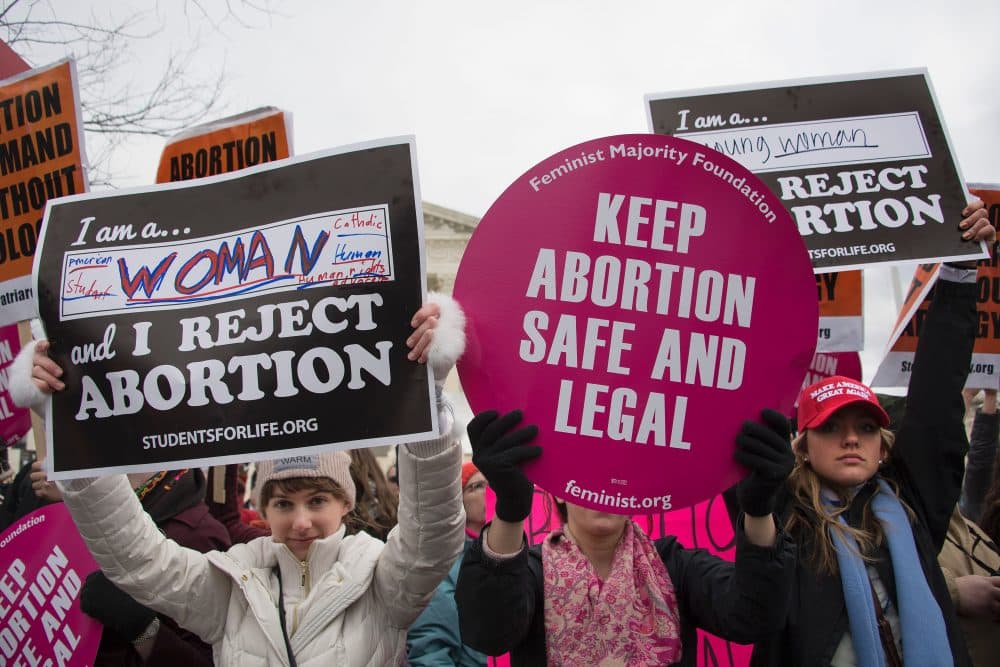Advertisement
Abortion Rights Advocates Worry About Future Of Roe V. Wade After Supreme Court Allows Texas Law
Resume
Abortion rights advocates worry that Supreme Court ruling could signal the beginning of the end for Roe v. Wade
The U.S. Supreme Court late Wednesday night allowed a Texas law banning abortions after six weeks of pregnancy to go into effect, but said that reproductive rights groups could still bring their challenge to the law back to the high court at a later time.
But the 5-4 decision has abortion rights advocates worried that Roe v. Wade may be in jeopardy.
Here & Now's Tonya Mosley speaks with Emily Bazelon, senior research scholar at Yale Law School and staff writer for The New York Times Magazine
This segment aired on September 2, 2021.